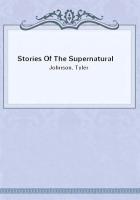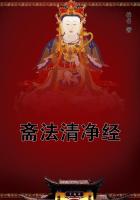. . . If mankind never manages to get rid of Christianity the Germans will be to blame. . . . 62. --With this I come to a conclusion and pronounce my judgment. I condemn Christianity; I bring against the Christian church the most terrible of all the accusations that an accuser has ever had in his mouth. It is, to me, the greatest of all imaginable corruptions; it seeks to work the ultimate corruption, the worst possible corruption. The Christian church has left nothing untouched by its depravity; it has turned every value into worthlessness, and every truth into a lie, and every integrity into baseness of soul. Let any one dare to speak to me of its "humanitarian"blessings! Its deepest necessities range it against any effort to abolish distress; it lives by distress; it creates distress to make itself immortal. . . . For example, the worm of sin: it was the church that first enriched mankind with this misery!--The "equality of souls before God"--this fraud, this pretext for the rancunes of all the base-minded--this explosive concept, ending in revolution, the modern idea, and the notion of overthrowing the whole social order--this is Christian dynamite. . . . The "humanitarian" blessings of Christianity forsooth!
To breed out of humanitas a self-contradiction, an art of self-pollution, a will to lie at any price, an aversion and contempt for all good and honest instincts! All this, to me, is the "humanitarianism" of Christianity!--Parasiti** as the only practice of the church; with its anaemic and "holy"ideals, sucking all the blood, all the love, all the hope out of life;the beyond as the will to deny all reality; the cross as the distinguishing mark of the most subterranean conspiracy ever heard of,--against health, beauty, well-being, intellect, kindness of soul--against life itself . . . .
This eternal accusation against Christianity I shall write upon all walls, wherever walls are to be found--I have letters that even the blind will be able to see. . . . I call Christianity the one great curse, the one great intrinsic depravity, the one great instinct of revenge, for which no means are venomous enough, or secret, subterranean and small enough,--Icall it the one immortal blemish upon the human race. . . .
And mankind reckons time from the dies nefastus when this fatality befell--from the first day of Christianity! --Why not rather from its last?--From today ?--The transvaluation of all values!
. . . THE END
FOOTNOTES created and inserted by H.L. Mencken:
1. Cf. the tenth Pythian ode. See also the fourth hook of Herodotus. The Hyperboreans were a mythical people beyond the Rhipaean mountains, in the far North. They enjoyed unbroken happiness and perpetual youth. [RETURN TO TEXT]
2. The lowest of the Hindu castes. [RETURNTO TEXT]
3. That is, in Pandora's box. [RETURN
TO TEXT]
4. John iv, 22. [RETURN
TO TEXT]
5. David Friedrich Strauss (1808-74), author of "Das Leben Jesu" (1835-6), a very famous work in its day. Nietzsche here refers to it. [RETURN TO TEXT]
6. The word Semiotik is in the text, but it is probable that Semantik is what Nietzsche had in mind. [RETURNTO TEXT]
7. One of the six great systems of Hindu philosophy. [RETURN TO TEXT]
8. The reputed founder of Taoi**. [RETURNTO TEXT]
9. Nietzsche's name for one accepting his own philosophy. [RETURN TO TEXT]
10. That is, the strict letter of the law--the chief target of Jesus's early preaching. [RETURNTO TEXT]
11. A reference to the "pure ignorance" (reine Thorheit) of Parsifal. [RETURN TO TEXT]
12. Matthew v, 34. [RETURN
TO TEXT]
13. Amphytrion was the son of Alcaeus, King of Tiryns.
His wife was Alcmene. During his absence she was visited by Zeus, and bore Heracles. [RETURN TO TEXT]
14. So in the text. One of Nietzsche's numerous coinages, obviously suggested by Evangelium, the German for gospel. [RETURNTO TEXT]
15. To which, without mentioning it, Nietzsche adds verse 48. [RETURN TO TEXT]
16. A paraphrase of Demetrius' "Well roar'd, Lion!"in act v, scene 1 of "A Midsummer Night's Dream." The lion, of course, is the familiar Christian symbol for Mark. [RETURNTO TEXT]
17. Nietzsche also quotes part of verse 2. [RETURNTO TEXT]
18. The quotation also includes verse 47. [RETURNTO TEXT]
19. And 17. [RETURN TO
TEXT]
20. Verses 20, 21, 26, 27, 28, 29. [RETURNTO TEXT]
21. A paraphrase of Schiller's "Against stupidity even gods struggle in vain." [RETURN TO TEXT]
22. The word training is in English in the text. [RETURN TO TEXT]
23. I Corinthians i, 27, 28. [RETURN
TO TEXT]
24. That is, to say, scepticism. Among the Greeks scepticism was also occasionally called ephecticism. [RETURNTO TEXT]
25. A reference to the University of Tubingen and its famous school of Biblical criticism. The leader of this school was F. C. Baur, and one of the men greatly influenced by it was Nietzsche's pet abomination, David F. Strauss, himself a Suabian. Vide § 10 and § 28. [RETURN TO TEXT]
26. The quotations are from "Also sprach Zarathustra"ii, 24: "Of Priests." [RETURN TO TEXT]
27. The aphorism, which is headed "The Enemies of Truth," makes the direct statement: "Convictions are more dangerous enemies of truth than lies." [RETURN TO TEXT]
28. A reference, of course, to Kant's "Kritik der praktischen Vernunft" (Critique of Practical Reason). [RETURNTO TEXT]
29. I Corinthians vii, 2, 9. [RETURN
TO TEXT]
30. Few men are noble. [RETURN
TO TEXT]















